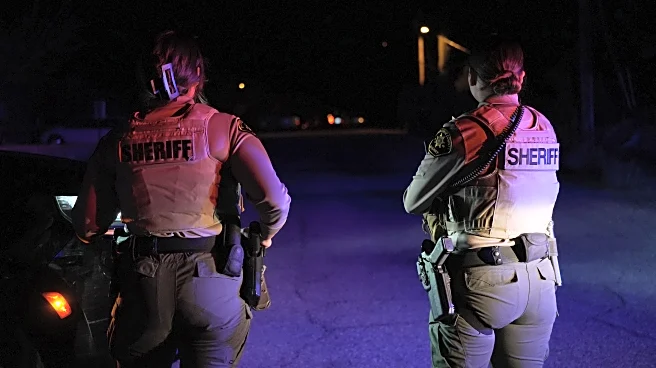What's Happening?
In Damascus, representatives of Syria's civil society and European Union officials held a rare meeting to discuss the country's future following the fall of the Assad regime. The discussions, part of the EU-organized
'Day of Dialogue,' addressed sensitive issues such as sectarian tensions, ethnic divisions, and the fate of missing persons. The meeting marks a significant shift from previous conferences held in Brussels, reflecting changes in Syria's political landscape. Syrian Foreign Minister Asaad al-Shibani emphasized the importance of partnership between the state and civil society in rebuilding the nation.
Why It's Important?
The meeting in Damascus signifies a new chapter in Syria's post-conflict recovery, highlighting the role of international cooperation in addressing the country's challenges. It underscores the EU's commitment to supporting Syria's transition and fostering dialogue among diverse groups. The discussions may pave the way for more inclusive governance and reconciliation efforts, crucial for stabilizing the region. The event also reflects broader geopolitical shifts, with the EU playing a key role in shaping Syria's future and promoting peace and stability in the Middle East.
What's Next?
The outcomes of the 'Day of Dialogue' may influence future policy decisions and international support for Syria's reconstruction. Continued engagement between Syrian civil society and international actors could lead to more comprehensive peace initiatives and aid programs. The meeting may also prompt further discussions on transitional justice and human rights, addressing unresolved issues from the Assad era. The EU's involvement in Syria's recovery process may strengthen diplomatic ties and encourage other nations to contribute to rebuilding efforts.
Beyond the Headlines
The historic meeting in Damascus highlights the complexities of post-conflict recovery and the importance of inclusive dialogue in rebuilding nations. It raises questions about the role of international organizations in supporting transitions and the challenges of addressing deep-rooted divisions. The event may influence public perception and policy debates on international aid and intervention, shaping future strategies for conflict resolution and peacebuilding. The discussions also reflect broader trends in global diplomacy, emphasizing the need for collaborative approaches to address humanitarian crises.











